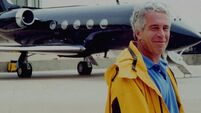At least 27 pilgrims dead after Mecca hostel collapse
Rescue workers today still hoped to find survivors from an eight-storey hostel building that collapsed in Islam’s holiest city of Mecca in Saudi Arabia, killing at least 27 people and marring the start of the annual gathering of millions of pilgrims.
Under spotlights, hundreds of men worked with cranes and other tools through the night to remove huge slabs of concrete from the site of yesterday’s collapse.














